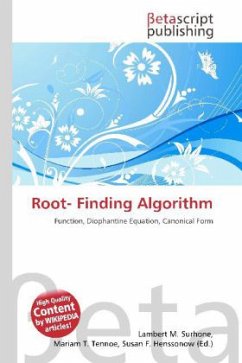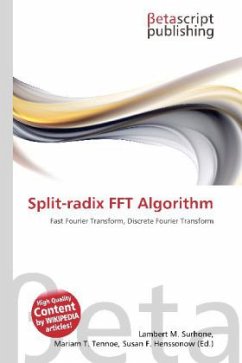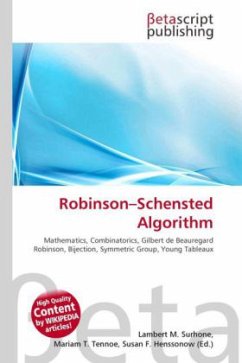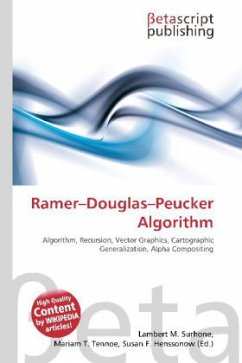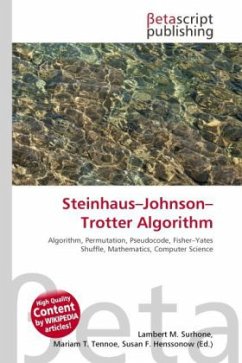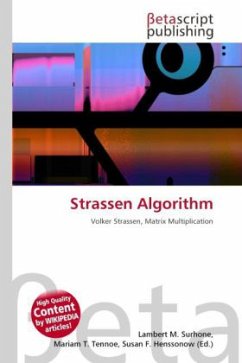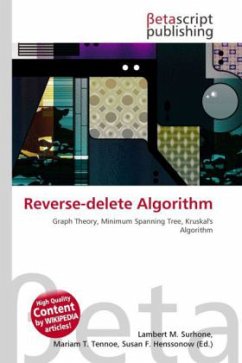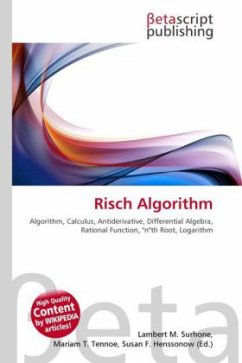
Risch Algorithm
Versandkostenfrei!
Versandfertig in 6-10 Tagen
26,99 €
inkl. MwSt.

PAYBACK Punkte
13 °P sammeln!
Please note that the content of this book primarily consists of articles available from Wikipedia or other free sources online. The Risch algorithm, named after Robert H. Risch, is an algorithm for the calculus operation of indefinite integration (i.e., finding antiderivatives). The algorithm transforms the problem of integration into a problem in algebra. It is based on the form of the function being integrated and on methods for integrating rational functions, radicals, logarithms, and exponential functions. Risch, who developed the algorithm in 1968, called it a decision procedure, because ...
Please note that the content of this book primarily consists of articles available from Wikipedia or other free sources online. The Risch algorithm, named after Robert H. Risch, is an algorithm for the calculus operation of indefinite integration (i.e., finding antiderivatives). The algorithm transforms the problem of integration into a problem in algebra. It is based on the form of the function being integrated and on methods for integrating rational functions, radicals, logarithms, and exponential functions. Risch, who developed the algorithm in 1968, called it a decision procedure, because it is a method for deciding if a function has an elementary function as an indefinite integral; and also, if it does, determining it. The Risch algorithm is described (in more than 100 pages) in "Algorithms for Computer Algebra" by Keith O. Geddes, Stephen R. Czapor and George Labahn. The Risch Norman algorithm, a faster but less powerful technique, was developed in 1976.



